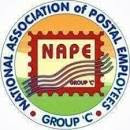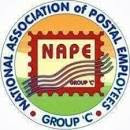No. 19-2/2001-ED & Trg. 14.6.07
Sub: - Hon’ble Supreme Court Judgment in Civil Appeal No. 143 of 2001 filed by Shri.Surinder Singh against Union of India and others against the judgment and order dated 27.09-2000 of High Court of Punjab and Haryana at Chandigarh in Civil Write Petition No. 1328—CAT/2000.
I am directed to forward a copy of judgment dated the 30th March 2007 on the above subject delivered by the Apex Court. In this case, the following questions of law have been raised before the Supreme Court:
(i) Whether the selection to post of EDDA (now called GDS Mail Deliverer) can be quashed by the Tribunal when minimum qualification prescribed for a post is middle standard and merit list is prepared on the basis of marks obtained in the preferential qualification, i.e. matriculation, and
(ii) Whether the Tribunal is competent to lay down the procedure for selection of a candidate and further empowered to impose conditions and restricts the exercise of the power of the employer in making the appointment as per prescribed rules.
2. The Hon’ble Supreme Court has taken into consideration the following orders issued by the Department:
(a) Letter No. 17-366/91 – ED & Trg. Dated 12-3-1993.
(b) Letter No. 19-17/97-ED & Trg. Dated 21-11-1997
The Apex Court at P.10 of judgment has observed that “guidelines/norms/instructions clearly stipulate that if the candidates, who have passed matriculation examination, are available for selection to the posts of EDDA, the selection should be made by the Selection Committee on the basis of the marks obtained by the candidates in preferential qualification (i.e matriculation) and in the absence of matriculate candidates, the selection has to be made on the basis of essential qualification, viz., 8th standard. It appears that the CAT as well as the High Court, both have lost sight of the object and import of the Guidelines/Norms/instructions, dated 21.07.1998 laid down by a Competent Authority. The CAT is not competent to lay down criteria for the selection and appointment to the post of EDDA. It is the prerogative and authority of the employer to lay down suitable service conditions to the respective posts.In our view, in service jurisprudence, the prescription of preferential qualification not only refers to numeric superiority but is essentially related to better mental capacity, ability and maturity to shoulder the responsibilities, which are entrusted to the candidates after their selection to a particular post. All the more, it is important for efficient and effective administration. The basic object of prescribing a minimum qualification is to put a cut-off level for a particular job in accordance with the minimum competency required for the performance of that job. The object of prescribing preferential qualification is to select the best amongst the better candidates who possess more competence than the other. Sub-Clause (iv) of Clause 3, puts a limit with respect to preferential qualification by way of clear stipulation that no preference should be given to the qualification above matriculation. Hence, the preferential qualification was considered to be more effective and efficient and also it was a clear assumption that a candidate possessing the same is best suited for the post in question.
……………in Government of Andhra Pradesh v P.Dilip Kumar and another (}1993)2 SCC 310}, this court in paragraph 13 held as under:-,
“13………………There is nothing arbitrary of unreasonable in the employer preferring a candidate with higher qualification for service. It is well settled by a catena of decisions that classification on the basis of higher educational qualification to achieve higher administrative efficiently is permissible under our constitutional scheme.”
Further in Paragraph 15, it is observed as under:
“15……….it is true that notwithstanding the preference rule it is always open to the recruiting agency to prescribe a minimum eligibility qualification with a view to demarcating and narrowing down the field of choice with the ultimate objective of permitting candidate with higher qualifications to enter the zone of consideration.”
In view of above stated factual situation and settled position of law, the orders of CAT as well as High Court cannot be sustained.”
You are requested to bring the contents of this important judgment to the notice of all concerned for information, guidance and necessary action. If any such case is presently pending before CAT/High Court, the contents of this judgment may be brought to the notice of the concerned CAT/High Court, through CGSC.
* Please Don't Spam Here. All the Comments are Reviewed by Admin.
Post a Comment
Featured Post
Top Post Ad
Below Post Ad
SIVAJI VASIREDDY

SECRETARY GENERAL, FNPO, CHQ New Delhi, & LSG Accountant, Sattenapalle HO - 522403, email: sivajivasireddy@gmail.com Mobile:9959538622
Total visitors till now
Search This Blog
Archive
Affiliated Unions
About Me
.jpeg)
- NAPE Group-C
- The NUPE Group-C was formed by Late Sri K.Ramamurti in 1968 then D.Kishan Rao was the General Secretary and now Vasireddy Sivaji is the present General Secretary
Regular Followers
Translate to Other Languages
Footer Copyright
Design by - Blogger Templates | Distributed by CopyBloggerThemes.com

.jpeg)
.jpeg)




